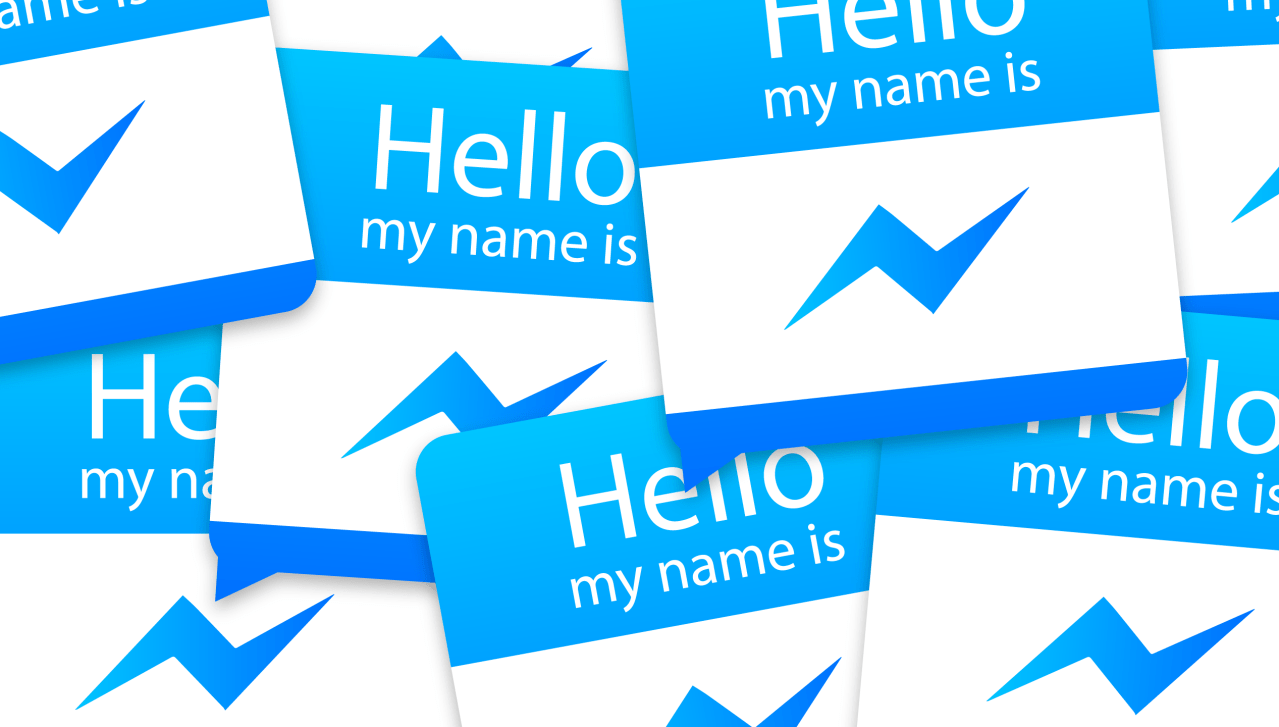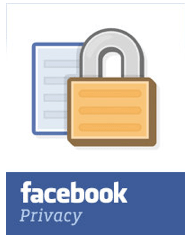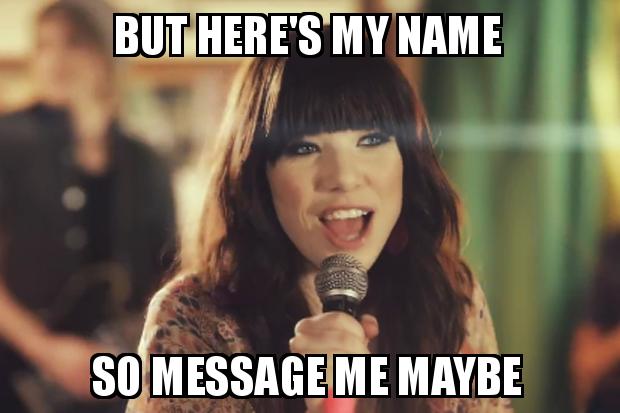The daily number of shared photos throughout the years 2005-2015 has logarithmically exploded.


The daily number of shared photos throughout the years 2005-2015 has logarithmically exploded.

Source: http://techcrunch.com/2015/10/27/facebook-message-requests/

Phone numbers are dumb. Once someone has yours, you can’t stop them from contacting you.
Someone might want you to call them, but if you don’t have their random string of digits, you can’t. And you could miss something extremely important if a person you’ve never met really needs to reach you.
Facebook Messenger has a plan to fix all that. And it’s born from the ashes of one of the social network’s worst products ever.
Today, Messenger is killing off the dysfunctional “Other Inbox”. It was where Facebook messages went to die if they were sent by someone who wasn’t your friend or friend-of-a-friend. Few people knew it existed. Fewer ever checked it. And it wasn’t even accessible from Messenger’s iOS or Android apps.
A friend of mine once received a Facebook message from his long-lost brother he was separated from at birth 30 years ago in Vietnam. But he didn’t see the message for six months because it went to his Other Inbox. It took a LinkedIn request before he realized what he was missing.

Thankfully, that shouldn’t happen anymore. Rolling out globally starting today is Facebook’s replacement for the Other Inbox which it calls “Message Requests”. It means all someone needs in order to contact you is your name, but you have control over whether they can contact you again.
Now, any message from a non-friend who doesn’t have your phone number will go into your Message Requests at the top of Messenger on mobile or in the Messages tab on web.

From there, you can parse who to respond to and who to permanently ignore. You’ll see the sender’s name, a little public info about them like their city, job, or mutual friends, and the message.
But the sender won’t know you looked. Respond and the thread goes to your normal inbox, ignore and it’s hidden in the Filtered Requests folder along with anything that seems like spam.
If you already have a thread open with someone or you have their phone number, your messages will be allowed into their normal inbox. One change to look out for is that messages from friends-of-friends will now be treated as requests. Facebook will no longer bet that having a friend in common means you care to talk to someone.
Essentially, Message Requests are like Friend Requests for chat. Except they create a new kind of relationship on Facebook — non-friends who can message you. And with that distinction, Messenger has unlocked the potential to connect with people you just met, someone you don’t know but need to talk to, and even businesses.

Tony Leach doesn’t know his parents’ phone number. Messenger’s Product Manager on Message Requests isn’t a terrible son. His family just moves a lot, and they insist on changing their number to the local area code each time. “Phone numbers are kind of a relic of the ’50s” he tells me. “I know [my parents] much better as people. Names are a much better way of contacting people.”
So back in 2010, Facebook tried, and failed, to turn your name into not your phone number, but your email address. The company gave everyone a [username]@facebook.com email address that connected to Messenger, and had the lofty idea that people would route their email newsletters, bills, and more there.

They didn’t. But the Other Inbox where the mediocre stuff you didn’t respond to was supposed to go became a dungeon where critical messages from non-friends languished unread.
It took awhile, including an intrusive partnership with Apple on contact syncing, before Facebook Message Requests’ engineering lead Michael Adkins says “We knew the other folder didn’t work for a mobile to mobile system.” If it was going to evolve beyond the desktop users were ditching, Facebook had to axe the Other Inbox.
“We’ve heard so many stories like estranged parents trying to get back in touch, or you lost your wallet and someone trying to get in touch with you” Leach explains. “That’s why we want to replace that with a system that makes it a lot easier to catch the messages that you want to see.”
It will be good for Facebook’s business too. Mobile is where people spend their time. The more useful Messenger is, the deeper users get locked in to Facebook’s ecosystem where they’ll see News Feed ads and generate data that earns Facebook money.
Now Facebook is making that move, shuttling all Other Inbox messages into the Message Request feature’s hidden Filtered Requests folder. Going forward, it hopes to help you intelligently parse non-friend messages in a way SMS never could.
As long as your message matters, you can now contact any of the 1.5 billion people on Facebook. This achieves what Leach calls “A level of openness where you can get in touch with anyone in the world but still have the control yourself of who contacts you and who can’t.”
That last part is critical. Make no mistake, this is a change in how the concept of privacy works for a massive swath of humanity. Facebook is trading our “privacy by obscurity” for “openness with control”. Facebook’s head of Messenger David Marcus himself notes that “While this may seem like a small change, it’s actually a foundational development.”

Previously, regarding the ability to contact someone, we had privacy by obscurity: someone couldn’t call or text you if they didn’t have your number. But once they did, you had almost no control. Even if you blocked their number, they could always change theirs or use someone else’s phone. “Once you give out your email address you have no idea what they’re going to do with it” Adkins warns. “They could sell it to someone one else. Same thing with phone numbers.”
The result was an initial level of security that if surmounted, opened up opportunities for harassment.

Now with Facebook, we’ll have openness with control: someone only needs your name to contact you, but you can block them much more effectively. Delete or ignore a Message Request, and you won’t be notified about someone’s messages any more.
And thanks to Facebook’s spam detection systems that flag recently created accounts with few friends, Messenger can keep blocking them automatically even if they create a new account to try to harass you. Messenger also factors in the sender’s previous messaging behavior and whether you typically approve Message Requests to determine what you see.
Now, if someone doesn’t seem like a spammer, Messenger could put that message from a stranger about returning your wallet or meeting at that party where you’ll actually see it. The change might be a little scary at first, and lead to a few more accidental pings about messages you definitely don’t care about. But long-term, openness with control is a more scalable way to handle communication in a globalized society.
This shift in how privacy works could fundamentally change how we interact interpersonally.
Typically, meeting someone new means exchanging names and having a conversation. At the end, if one person has the guts to ask to extend the meeting into a friendship or something more, they have to explicitly ask for that person’s phone number.
But often times, that’s either daunting or inconvenient. While it might seem respectful to have to ask in person for permission to contact someone in the future, many will feel too awkward to turn someone down. The result is relationships both people don’t really want, or an uncomfortable situation with fake numbers or dashed hopes.

Message Requests could also make Facebook a way to communicate with contractors, short-term business colleagues, or anyone else you want to chat with temporarily, but don’t want to friend or give your number.
 But the even bigger opportunity for Facebook is using Message Requests as the foundation for a WeChat-style way to chat directly with businesses. The News Feed works for non-essential content shared by businesses, but if they need to reach you to work out details or modify your order, messaging works much better.
But the even bigger opportunity for Facebook is using Message Requests as the foundation for a WeChat-style way to chat directly with businesses. The News Feed works for non-essential content shared by businesses, but if they need to reach you to work out details or modify your order, messaging works much better.
Facebook is already experimenting with ways to let you receive customer service, attain a quote on home repair, or contact Page admins via Messenger. And there’s already a payment system built into Messenger. Imagine one day getting a Message Request from a business you’ve interacted with, then being able to receive important updates or even buy things from them right from chat.
But for now, maybe Message Request will empower the more shy ones among us. The barrier to a deeper connection has been dismantled. All you need is a name.
Leach concludes, “I can’t help but think of how many dates I missed out on because I was too scared to ask someone’s phone number in the moment.”
Source: http://techcrunch.com/2015/10/27/facebook-message-requests/
Only two companies have apps with over 1 billion Google Play downloads, and the other is Google. Today Facebook proved just how big a business replacing SMS can be, as its leader David Marcus announced Messenger has now been downloaded over 1 billion times on Android. It joins Facebook and WhatsApp, and Google’s Gmail, YouTube, Search, and Maps in this very exclusive club.
Messenger’s strategy of layering modern mobile sharing features over a speedy texting app has paid off, and it looks like Facebook’s just getting started. With VOIP, video calling, stickers, voice clips, peer-to-peer payments, location, and a whole platform of third-party content creation apps, Messenger wants to own every way you communicate. And it partially is for well over 600 million users.

Combined with WhatsApp’s streamlined SMS alternative, Facebook controls messaging in a way that deeply insulates it from disruption. Snapchat and Yik Yak might steal a few users from its social network feed, but Facebook’s already focusing on the next fundamental communication utility.
In fact, Facebook has been subtly baking Messenger munch deeper into its product.
When you graph search for people, like friends who like a certain band, Facebook shortcuts you to ping them on Messenger, not visit their profile. When it’s a friend’s birthday, in some cases Facebook now recommends that you message them Happy Birthday, rather than writing it on their wall.

Just last week, Facebook overhauled how Messenger handles map and location sharing to lay the groundwork for a slew of new GPS-enabled features. Before, finding where to meet up with people was the domain of Nearby Friends in the main Facebook app.
And Facebook’s secret weapon in the messaging wars is that chat isn’t where it makes its money. Rather than having to cram Messenger full of ads or convince you to buy Sticker packs, it just has to tie people closer to its big brother Facebook where lucrative mobile ads earn enough money to provide for the whole family.

Getting to this point wasn’t easy. Facebook had offend the pride of its whole userbase by telling them they were required to download whole other app for Messaging. It wasn’t sweet, but the medicine went down, and Facebook saw engagement rise once chat wasn’t buried in its blue behemoth. Freed from the extra weight, Messenger was thin and agile enough to build out its bells and whistles.
With former PayPal President David Marcus in command and expert product guy Stan Chudnovsky as his first mate, in just the last six months Messenger has:
Meanwhile, the other giant with deep enough pockets to fund a true attempt at owning messaging has spent the past few years distracted by moonshots. Google was late to launch its mobile messenger, which was dragged down by Google Plus. It squandered its Hangouts product’s early lead in video chat, and missed on the chance to acquire WhatsApp, which could have turned this into a two-horse race.

Instead, Facebook saw that messaging was the center of mobile, the app you use the most times per day. If it’s the reason you open your phone at first, it’s wedged a foot in the door to become the second and third thing you do too. And with China’s WeChat pioneering the chat-app-as-a-portal roadmap, Facebook can just port what works to the rest of the world.
After years of people asking what would be the Facebook killer, Facebook happily provided its own answer.
Further Reading: http://www.forbes.com/sites/amitchowdhry/2015/04/21/whatsapp-voice-calling-ios/ and http://www.macrumors.com/2015/04/21/whatsapp-gains-voice-calling/
„WhatsApp, the popular mobile messaging service owned by Facebook, has released a major update to its iPhone app today. The update includes the highly-anticipated WhatsApp Calling feature, which rolled out to every Android user late last month. The WhatsApp Calling feature is comparable to Skype and the FaceTime Audio service on iOS. Data charges may apply while using the WhatsApp Calling feature.
“Call your friends and family using WhatsApp for free, even if they’re in another country. WhatsApp calls uses your phone’s Internet connection rather than your cellular plan’s voice minutes,” said WhatsApp in its app update description.
Unfortunately, The WhatsApp Calling feature is rolling out slowly so you may not see it right away. The new calling feature should be available for every iOS user within the next few weeks. Prior to launching WhatsApp Calling for Android, the messaging company ran a lengthy beta test.
WhatsApp version 2.12.1 also includes an iOS 8 share extension, a quick camera button in chats, the ability to edit your contacts right from WhatsApp and an option to send multiple videos at once. You can also crop and rotate videos before sending them. The iOS 8 share extension lets you share photos, videos and links to WhatsApp from other apps. And the quick camera button lets you seamlessly capture photos and videos or choose a recent camera roll photo or video.

How does WhatsApp Calling for iOS work? If someone calls you through WhatsApp, you will see a push notification from the messaging service showing who the call is from. Once you answer the call, you will notice that there are options to mute the call or put it on speakerphone. You can also send a message to the person calling you. If the WhatsApp Calling feature for iOS is similar to the Android app, then you will see a Calls tab that has a list of your incoming, outgoing and missed WhatsApp calls. Personally, I do not have access to WhatsApp Calling for iOS app yet.
Launched in 2009, WhatsApp started out as a simple group text messaging app. Four years later, WhatsApp added a voice messaging service. And then Facebook acquired WhatsApp for $19 billion in February 2014. Several months ago, WhatsApp launched a desktop client called WhatsApp Web — which you can activate with an Android, BlackBerry, Windows Phone or Nokia S60 device.
Earlier this month, WhatsApp hit 800 million monthly active users. WhatsApp has been adding about 100 million monthly active users every four months since August. In January, WhatsApp hit 700 million monthly active users. WhatsApp now has more users than every other messaging app, including Facebook Messenger. It took Facebook about 8 years to hit 1 billion users. Facebook now has about 1.4 billion monthly users and Facebook Messenger has roughly 600 million users.“
„After promising to deliver voice calling capabilities back in 2014, WhatsApp has finally delivered, introducing voice over IP features in its latest update. With the new version of the app, it’s possible for WhatsApp users to call friends and family directly within the app using a Wi-Fi or cellular connection at no cost.
The introduction of voice calling to the Facebook-ownedWhatsApp app puts it on par with Facebook’s other messaging app, Facebook Messenger, which gained voice calling back in 2013. It also allows the app to better compete with other iOS-based VoIP calling options like Skype and FaceTime Audio.
Today’s WhatsApp update also brings a few other features, including the iOS 8 share extension for sharing videos, photos, and links to WhatsApp from other apps, contact editing tools, and the ability to send multiple videos at one time.
What’s new
-WhatsApp Calling: Call your friends and family using WhatsApp for free, even if they’re in another country. WhatsApp calls use your phone’s Internet connection rather than your cellular plan’s voice minutes. Data charges may apply. Note: WhatsApp Calling is rolling out slowly over the next several weeks.-iOS 8 share extension: Share photos, videos, and links right to WhatsApp from other apps.
-Quick camera button in chats: Now you can capture photos and videos, or quickly choose a recent camera roll photo or video.
-Edit your contacts right from WhatsApp.
-Send multiple videos at once and crop and rotate videos before sending them.
WhatsApp can be downloaded from the App Store for free. The new WhatsApp calling feature will be rolling out to users over the next few weeks.“
Source: http://www.forbes.com/sites/parmyolson/2015/03/23/carriers-facebook-phone-app/
Further Reading: http://www.forbes.com

Facebook has accidentally leaked information about a new app that it’s testing, called ‘Phone,’ and this news should come as no surprise to anyone who believes Facebook wants to be at the center of how we communicate with the world around us. That includes with all elements of texting (through Messenger and WhatsApp) and increasingly, voice.
The app appears to be some sort of native dialler for Android that shows information about who is calling, and which automatically blocks calls from commonly blocked numbers. A spokesman confirmed to Venture Beat that Facebook was testing the service, after Android Police first posted a screenshots of an install update that should have only been seen by Facebook’s internal network. Thanks to Apple’s closed system it’s unlikely Facebook is even exploring making such an app for iOS.
Why does Facebook want to give its users a native dialler? Facebook has allowed users to make video calls through its desktop client since 2011, and voice calls through Facebook Messenger since early 2013. But both these services require that people on either end of the line are using the same Facebook feature, and the calls can only take place over a mobile carrier data network or WiFi.
A native dialler application would appear to be Facebook’s first service that coordinates with a carrier’s all-important voice network.
(It has yet to be confirmed that ‘Phone’ will filter calls being made to your phone number and not just between Facebook users, but the former seems likely. The video and audio calling features that Facebook already has don’t seem popular enough that users would want a separate app just to block VoIP calls – and most of the calls you want to block are spammers and marketers who managed to get hold of your mobile phone number anyway.)
In essence, Facebook appears to be trying to wedge itself a little further into the relationship between its users and carriers, when users are carrying out one of the most fundamental acts that telcos rely on to make money – making voice calls. That’s a crucial step both symbolically and practically, and the fact that the service is called ‘Phone’ suggests Facebook eventually wants to be part of the phone-calling experience that carriers still dominate.
International carriers like Vodafone and BT Group are still stinging from the huge bite of SMS revenues that WhatsApp, the globally popular messaging service with 700 million active users, took out over the last five years with its free texting service.
The messaging service, which Facebook bought last year, is now rolling out a free voice-calling service. While that won’t involve a native dialler, it looks set to take yet another chunk out of carrier revenues, this time in voice.
Should carriers be worried about Phone? It’s easy to dismiss a new, forthcoming app from Facebook as yet another failed experiment that will get tossed on the same heap where Slingshot, Poke and the Android launcher Facebook Home reside.
Yet even if Facebook’s users don’t fall in love with Phone, and the service doesn’t go much further beyond the testing phase, there’s no question the social network wants to become a more integral hub for our everyday communications. That could eventually mean weaning consumers off their reliance on carriers’ voice and texting services, and driving the role of carriers further down into the ground as “dumb pipes” that transport our data and not too much more.